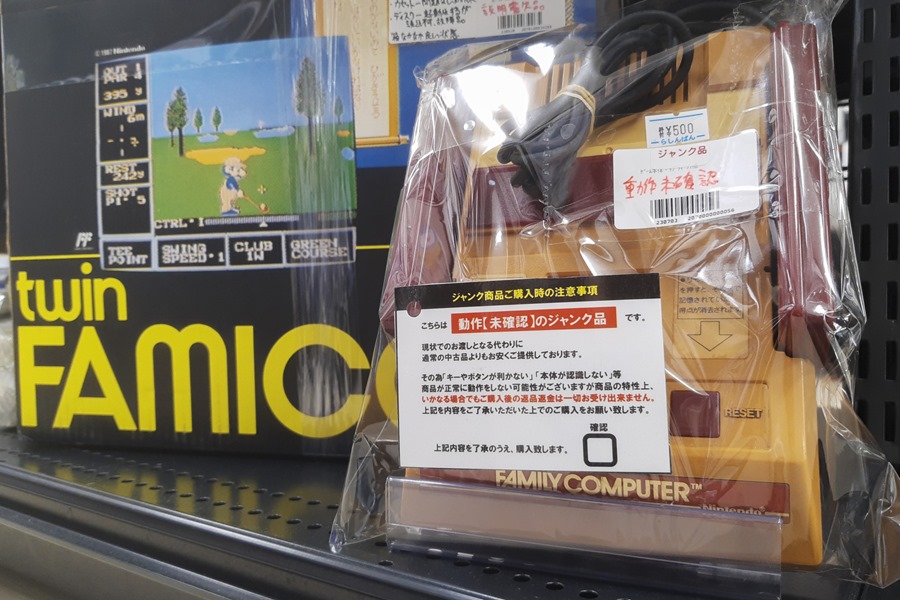Maria Roldan |
Tokyo (EFE).- The jump to the big screen of the most famous plumber in video games, Mario, constitutes a new step in his evolution and a symbolic maneuver in 2023, when the 40th anniversary of the home console that saw him is celebrated stand out and lay the foundations of the current industry, the Famicom.
Launch of “Super Mario Bros.: The Movie”
The release of “Super Mario Bros.: The Movie” last April has revived the incombustible interest in the Nintendo character and his franchise partners, and reported a new source of income for the Japanese company, which allied with the American production company Illumination for your movie adventure.
The film, a tribute to the rich universe created in the games in the series, has grossed more than 1,345 million dollars worldwide, according to the specialized website Box Office Mojo. Around 7% of the total is in Japan, where it is still in theaters and this week was ranked 27th in the country’s highest-grossing films.
Mario’s success is indivisible from the game that saw him take the big leap towards the public, “Super Mario Bros.”.

Although the character’s origins go back to 1981, with his appearance in the arcade “Donkey Kong” under the name Jumpman, practicing carpentry before plumbing, and under his current name in the also arcade “Mario Bros.”, from 1983 , it was “Super Mario Bros.” (1985), from the Family Computer (Famicom), where he excelled.
“The Famicom catapulted him to superstar status and made him one of the most recognizable characters in the world. Today’s Mario games are different in many aspects, but the basic mechanics, characters and plot are still reflected in them today,” video game analyst Serkan Toto told EFE.
In a new veiled tribute to these origins, Nintendo announced a few weeks ago a new 2D game, “Super Mario Bros. Wonder”, which will be released in October.
a lifeboat
“It’s not an exaggeration to say that the introduction of the Famicom saved the video game industry,” says Toto. “It’s the first console that really allowed developers to produce clear graphics, true soundtracks and tell deeper” stories, he adds.
Launched on July 15, 1983 in Japan, the Famicom “is the cornerstone of Nintendo’s status as the world’s most iconic video game company and is loved by gamers to this day,” says the analyst.

The Famicom’s rich and extensive catalog of games is still used on its most recent console, the Switch, for the tens of millions of subscribers to its paid services, and the original cartridges remain coveted collector’s items on the second-hand market today. where they reach exorbitant prices.
The Famicom was a sales success in Japan, where it sold half a million units in just two months, but its penetration in foreign markets would be more complex and would transform the environment.
The United States, the area from which this market traditionally expanded abroad, had turned its back on video games after the Atari debacle in the early 1980s and the then president of Nintendo America, Minoru Arakawa (son-in-law of the president of the parent, Hiroshi Yamauchi), embarked on an odyssey to personally distribute the customized machine to stores, first in New York, then in other cities.
The Famicom would be launched in the United States in 1985 under the name Nintendo Entertainment System (NES), the same one that would be used in Europe and other territories, where it spread appealing largely to the desire of consumers to buy “the new video game system where play the Mario game”, according to “The Ultimate History of Video Games” (2001), by the Californian journalist specialized in the industry Steven L. Kent.
The Famicom/NES would sell 61.91 million console units and more than 500 million cartridges in its commercial life, according to official figures, its command would set a precedent and the development and business model built around it would be the basis on which that the sector is still established today, especially the hierarchy of the “first-party” and “third-party”.
In addition, some of the most memorable franchises in the history of video games would be born within it, among which are not only Mario, but titles such as “The Legend of Zelda”, “Metroid”, “Castlevania” or “Dragon Quest”. ”.






